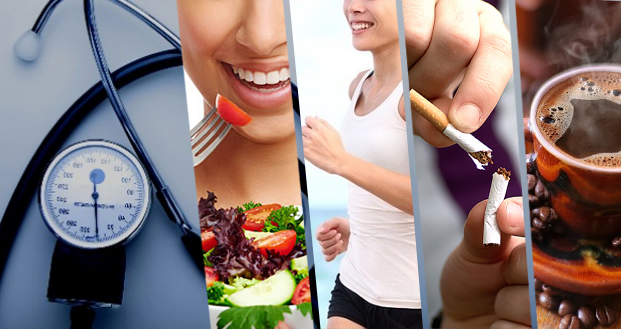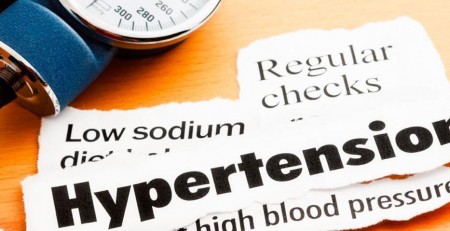Preventing Hypertension
How To Prevent High Blood Pressure
High blood pressure is a leading cause of cardiovascular disease. It accounts for two-thirds of all strokes and half of all heart disease.
One out of every five people in India has high blood pressure or hypertension. The situation is worse in Maharashtra, the ratio increasing to one in three.
Hypertension is often asymptotic. Many people never know that they have hypertension, simply because they have never had any reason to go to a doctor and check their blood pressure. It is often detected accidentally or after some tragedy strikes. That’s why it is called a silent killer!
The incidence of hypertension is so high today that it is vital that young people keep a regular watch on their blood pressure, at least once in every six months, even if they are not overweight, have no personal or family history of hypertension, and more often if they have all three plus stress.
Three decades ago, a survey amongst school children in Pune found a high incidence of obesity and hypertension, the incidence is much higher today! If your child is overweight or obese do get his blood pressure checked regularly and make sure that he loses weight.
Childhood obesity predisposes children to early hypertension, dyslipidemia, diabetes and heart disease.
Prolonged hypertension damages the blood vessels and various organs of the body.
It causes hardening and thickening of the arterial walls and the narrowing of their lumen. It can lead to weakening and bulging of the arteries. This is called aneurism and such aneurisms can rupture causing grave complications.
Hypertension can cause heart attacks and strokes. Raised blood pressure causes greater resistance to the flow of the blood through the arteries and forces the heart to pump harder to circulate blood through our body, causing hypertrophy (thickening) of the heart muscle. The thickened heart muscle struggles to pump blood efficiently and eventually fails to do so, causing heart failure.
Thickening and narrowing and aneurysms of the arteries in kidneys or eyes can damage these organs can lead to renal failure and loss of vision.
Hypertension also contributes to development of the metabolic syndrome that leads to development of diabetes, heart disease and strokes.
It can also cause circulatory problems and strokes in the brain and lead to impairment of memory and understanding and development of vascular dementia.
Thus you can see that untreated hypertension can cause blindness, renal (kidney) failure, heart attacks, strokes, and death. Even those people who are on proper medication may not necessarily escape these complications.
This said, it is vitally important that people consult their doctor, take the prescribed medication regularly and never stop medication on their own, without the knowledge of the doctor. Many people commit this mistake and pay the ultimate price for it.
Even amongst the people who are on regular medication, few have well-controlled blood pressures, 140/100 m.m. of Hg or more are not uncommon, when the levels should be 120/80 m.m. of Hg or less! Such people run the same health risks as mentioned above.
So our best option is to prevent hypertension and most people can definitely do it.
High blood pressure most often occurs without having any specific underlying disease leading to it. This hypertension is called primary or essential hypertension. About ninety to ninety-five percent of all hypertension cases fall into this category. Only five to ten percent people have an underlying disease leading to hypertension. This kind of hypertension is called secondary hypertension.
Various theories have been put forth about the causes of essential hypertension. Broadly speaking high blood volume, increased cardiac output, increased resistance of the arterial walls due to their thickening and reduced elasticity, narrowing of the lumen of arteries, increased vascular tone and a few other causes are thought to lead to primary hypertension.
But the fact remains that, with proper precautions, most people can prevent the onset of primary hypertension, many may overcome the problem completely.
Here are some interesting facts about the effects of food, exercise and weight loss on blood pressure.
Exercise alone has been shown to reduce systolic blood pressure by 3.5 and 2.0 mm respectively.
Improvement in diet by shifting to low fat dairy (milk, curds, buttermilk) and fibre rich foods viz. vegetables and fruits, we already have ample pulses and legumes in our food, has been shown reduce blood pressures by 5.5 and 3.0 mm Hg in people whose diets are rich in high fat dairy, flesh foods and low in low fat dairy and fibre rich foods.
Weight loss of every four kg has been shown to reduce systolic blood pressure by 6.25 mm and diastolic blood pressure by 4 mm.
The combined effects of exercise and weight loss has been shown to reduce systolic blood pressure by 12.5 mm and diastolic blood pressure by 8 mm in overweight or obese people.
Exercise has also been shown to improve ventricular mass and wall thickness, reduce arterial stiffness and improve endothelial function, improving our chances of fighting off coronary artery disease, strokes and peripheral vascular health by lowering blood pressure.
Exercise also improves the health of the arteries by reducing inflammation of the endothelial lining of the arterial wall, improves their flexibility, prevents clot formation and also prevents coronary and cerebral vascular accidents.
So you can see why it is essential to eat healthy, exercise regularly and lose weight to overcome hypertension.
Following are the essential steps you must take to prevent this hypertension.
Adapt a healthy lifestyle.
Keep your nutrition healthy, complete and moderate in calories.
Eat minimum fatty and sweet food and red meat.
Eat salt minimally. Avoid high salt foods like ‘papad’, ‘chatani’, ‘pickles’, dried and salted fish. Salt causes the blood volume to increase and this, in turn, causes blood pressure to climb. The sodium content of mineral salt may be higher than table salts. So, contrary to popular belief, mineral salts like ‘saindhav’ may be worse for hypertension than the table salts. Avoid mineral salts and ‘chat masalas’.
In general, foods rich in potassium, beans, dark leafy vegetables, all fruits, notably bananas, potatoes, fish, mushrooms, will help lower blood pressure. So include them in your food regularly.
Foods high in sodium, table salt, mineral salts, chaat masala, pickles, dried fish, fast foods, chips, French fries, salted nuts, canned foods (meats, fish and beans), sauces, salad dressings, will increase blood pressure. Keep them out of your food.
In general, animal source foods are high while vegetable source foods are low in sodium. So eating less of flesh and more of vegetables and fruits will help lower blood pressure.
Workout sufficiently; a brisk walk of at least thirty to sixty minutes will be good enough for most people, thirty if you are slim, sixty if you are overweight.
Make sure that you move around, get a little stroll whenever possible and generally remaining more active during work hours if you have a sedentary job.
Lose weight. A slim tummy will dramatically help bring down blood pressure, blood sugar and blood fats and cholesterol. Abdominal obesity leads to hypertension, diabetes and heart disease.
Quit smoking and consuming tobacco in any form.
Sleep and rest adequately. Seven hours of sound sleep will prove invaluable.
Be happy, positive, contented and peaceful.
A mind full of negative thoughts, sorrow, irritability, anger, endless desires, and a king size ego causes immense damage to our health. This kind of mindset leads people to hypertension, diabetes and heart disease sooner or later.
Any honest and intelligent person can identify if he or she has such a mindset. A bloated ego or plain stupidity can prevent us from identifying that we have such a mindset.
You must calm down your mind, free it from the clutches of negative and violent thoughts if you really want to become happy and healthy and free from the impending threat of hypertension, diabetes and heart disease.
And it can be done for sure, only you should want to be happy and healthy.
Take up a technique as simple as ‘yoganidra’ if not meditation if you wish to be calm, happy and healthy. Consistent yoganidra will immensely help in making you peaceful, happy and positive.
So ensure that you take these steps urgently and see how dramatically your blood pressure and blood chemistry improve. These steps will give you much improved mental and physical health and prevent hypertension, diabetes and heart disease and also slim you down!
Also read ‘Health Problems Of The Young: Hypertension’, ‘Hypertension Prevention And Control Program’ and ‘Preventing Diabetes‘ on this website.

















Leave a Reply